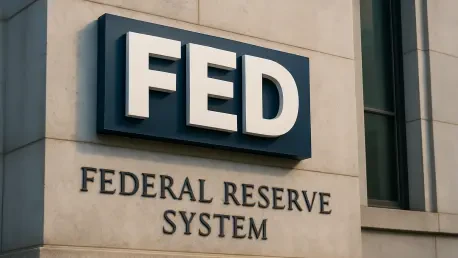In recent years, economic and political circles have been engrossed with the Federal Reserve’s independence under Jerome Powell’s leadership, sparking intense debate over preserving its autonomy. The possibility of Powell’s resignation raises compelling questions and opens a controversial discussion that resonates across expert circles, shedding light on the delicate balance required to protect the institution from political interference.
A Vital Conundrum: Preserving Fed Autonomy
The tenure of the Federal Reserve Chair has become a focal point of heated discussions, particularly with the persistent scrutiny from various political figures, most notably former President Trump. This scrutiny has fueled concerns about the Federal Reserve’s ability to function independently, free from political influence. Trump’s repeated criticisms, especially regarding interest rates and the financial handling of renovations, have ignited broader discourse on the sustainability of the Fed’s independence. Amidst global political pressures on central banks, this conversation holds significant weight for stakeholders focused on cultivating economic stability and sound monetary policy.
Economists are divided over whether Powell’s resignation might serve as a strategic remedy. Critics suggest this move could stabilize perceptions and reaffirm institutional autonomy, while supporters believe Powell can withstand pressures and uphold the Fed’s integrity. Regardless of perspective, the ongoing dialogue underscores the urgency with which autonomy must be preserved, ensuring central banks can operate effectively, devoid of undue political interference.
Advocates and Advisers: A Collective Dissection
Prominent economists, including Mohamed El-Erian and Jeremy Siegel, have voiced support for Powell’s resignation as a means to reinforce Fed independence. El-Erian has noted the detrimental impact of controversies surrounding Powell, arguing that his departure might restore trust and credibility in the institution. Siegel, emphasizing the long-term ramifications, warns against Powell becoming a convenient scapegoat should economic conditions deteriorate, potentially catalyzing a push for greater political control over the Fed.
Treasury Secretary Scott Bessent raises another layer to the discourse, documenting a phenomenon known as “mission creep.” This refers to the Federal Reserve’s expansion into areas beyond its core responsibilities, argued to be a deviation from its essential mission under Powell’s leadership. Bessent underscores the need for introspection, advocating for an internal review to realign the Fed’s focus and address these concerns effectively.
Credibility at Stake: Economist Perspectives
The debate over Powell’s potential resignation is further enriched by insightful contributions, both supporting and challenging his leadership. El-Erian’s perspective aligns with the belief that Powell’s exit could mitigate existing harmful perceptions, potentially restoring market confidence under new stewardship. Conversely, Bessent provides a nuanced evaluation, acknowledging Powell’s merits and emphasizing due respect for his decision, while balancing concerns about his effectiveness amidst relentless criticism.
These contrasting viewpoints illuminate a broader historical pattern seen within global central banks, grappling with the dual challenge of maintaining autonomy while responding to political pressures. The expert discourse signifies a collective realization that the resilient status of the Fed hinges on strategic leadership and integrity, fundamental to steering the economic landscape toward stability.
Prospective Paths: Ensuring Central Bank Autonomy
Exploring pathways to fortify Fed independence involves strategizing leadership transitions and endorsing prospective successors. Experts propose figures like Kevin Hassett and Kevin Warsh as potential candidates, suggesting they could effectively stabilize any resultant market anxiety and uphold the Fed’s reputation. Thoughtful consideration regarding future leadership change, coupled with preserving the institution’s core values, is paramount for radio broadcast continuity amidst challenging political climates.
Key actionable steps include reinforcing policy frameworks that protect the Fed from external interference and advocating for robust mechanisms that sustain institutional integrity. By enhancing transparency and accountability, the Fed can navigate complex political landscapes, ensuring its mission aligns solely with monetary policy objectives and economic health.
The narrative surrounding Jerome Powell’s role within the Federal Reserve offers a dynamic exploration of how leadership decisions impact institutional autonomy. While Powell’s potential resignation prompted various opinions, it did reflect ongoing concern for maintaining independence amidst political scrutiny. Future considerations focus on ensuring central banks can thrive, embodying the spirit of impartiality and resilience in the quest for steadfast economic governance.









